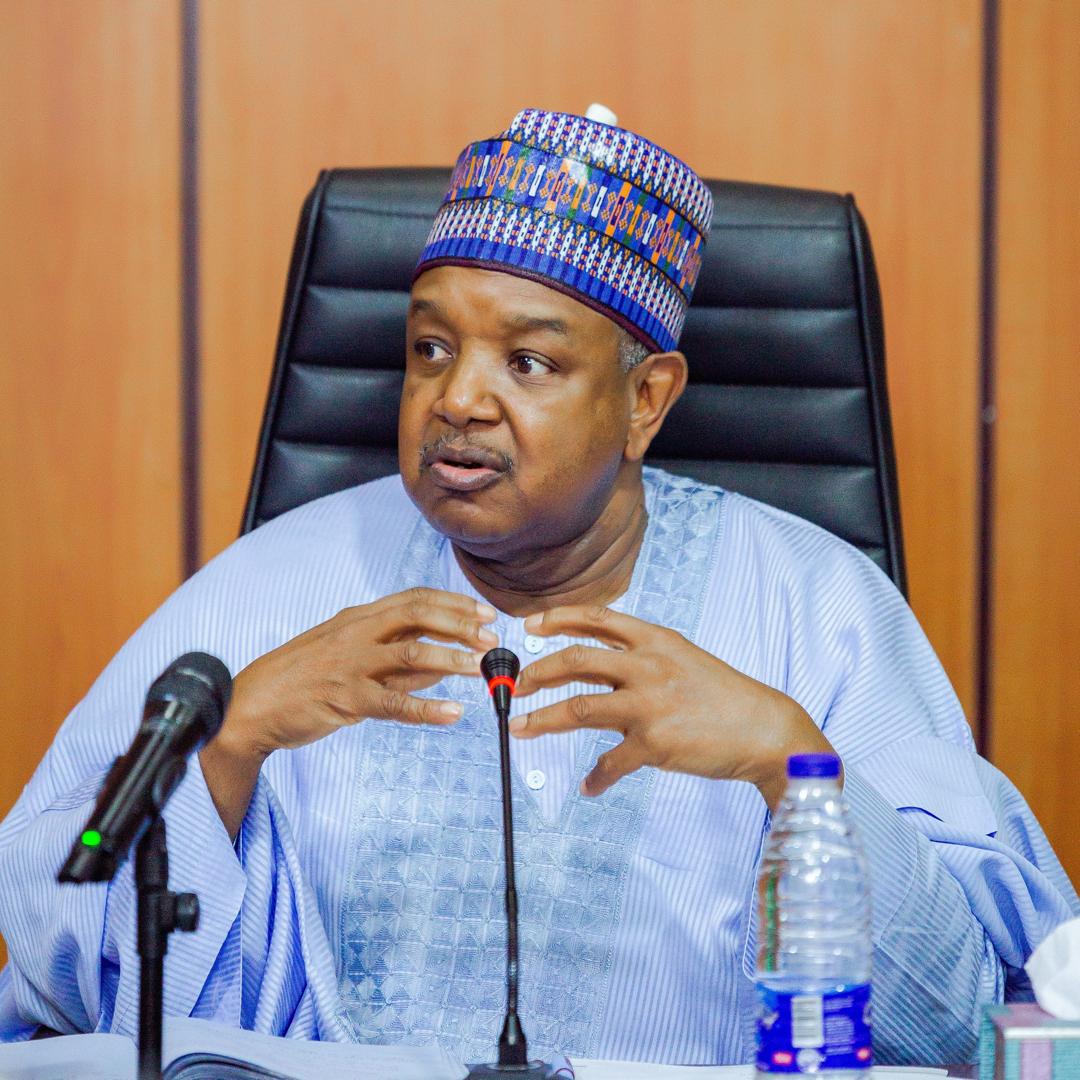With the varied results from different states in Nigeria in terms of development and approach to governance, the political class has realised that states and local governments should take urban development planning very seriously. Modern cities should be seen as agents of development, poverty reduction, and job creation. Beyond lip service, they should make vigorous efforts to tackle the effects of climate change and rejuvenate and sustain tree planting, greening and eco-friendly recreational systems.
To deepen this, plans should be implemented to decongest the cities and develop the suburbs as sustainable cities across the globe have done. For instance, Akure, Abakaliki, Birnin Kebbi and Lokoja should be able to attract Nigerians like Lagos, Port-Harcourt and Kano. In the same way, smaller towns in a state should be able to attract people like the capital cities. To achieve this, State governments and LGs should invest in infrastructure, effectively maintain public utilities, and tackle crime to make the cities more liveable.
Having watched developmental happenings in Kebbi State in the last 25 years, I decided to put this together as a witness to deliberate developmental strides that have rewritten the history of the State. Between 1991, when Kebbi State was carved out of the Western part of Sokoto State, stakeholders in the State have consistently envisioned a state that will be a pacesetter in the northern part of Nigeria regarding infrastructural development, security and social welfare.
Anyone who has ever visited Birnin Kebbi knows it has abundant energy, opportunities and resources, especially its people, infrastructural development and agricultural revolution. Around the turn of this period, the immediate past governor of the State and now the Minister of Budget and Economic Planning, Senator Abubakar Atiku Bagudu, signalled his intention 10 years ago to stop the rot and launched a programme to transform Kebbi State and change the narrative. To this end, Bagudu admitted that armed Banditry was a menace prevalent across the State, which needed to be addressed, and he faced it forthrightly.
Today, with a strong foundation already in place, Kebbi State competes very well with other states regarding political stability, quality governance, and an enabling environment for businesses. Bagudu’s tenure as Governor of Kebbi State (2015–2023) ushered in a transformative era of infrastructure development, setting the stage for economic expansion and regional progress. Understanding the inextricable link between infrastructure and prosperity, Bagudu prioritised investments in roads, electricity, urban renewal, and industrial growth. His administration’s efforts improved connectivity, enhanced commerce, and positioned Kebbi as a model for infrastructure-driven economic transformation.
Before Atiku Bagudu assumed office, Kebbi faced significant transportation challenges. Poorly maintained roads and limited access between rural and urban centres hampered economic activities, isolating farmers and traders from essential markets. In response, his administration embarked on an ambitious road construction and rehabilitation program, ensuring that agricultural zones, major towns, and commercial hubs were efficiently linked.
By the time he left office, over 500 kilometres of roads had been built or rehabilitated, significantly reducing transportation costs, easing mobility, and boosting trade. Expanding township roads in Birnin Kebbi improved urban mobility while constructing rural access roads, which enabled farmers to transport goods more efficiently. Modern drainage systems were also integrated into road projects to prevent flooding and prolong road durability, further solidifying Kebbi’s infrastructure gains.
Recognising the crucial role of energy in economic development, Atiku Bagudu also prioritised rural electrification and alternative energy solutions. His administration extended electricity to underserved communities through the Kebbi State Rural Electrification Project, enhancing the quality of life and fostering economic productivity. By collaborating with the federal government and private investors, his government facilitated off-grid solar energy solutions, ensuring reliable power supply in remote areas. Industrial clusters and business hubs gained stable electricity access, attracting investors and enabling small-scale manufacturing to thrive.
The introduction of solar-powered irrigation systems further revolutionised agriculture, reducing dependence on rain-fed farming and boosting food security.
Atiku Bagudu’s vision for economic diversification was anchored on a strong industrial base. Under his leadership, Kebbi witnessed significant strides in establishing industrial parks, trade hubs, and agro-processing zones, creating an enabling environment for private sector investment. Industrial parks attracted manufacturers and processing plants, agro-processing industries ensured increased agricultural output translated into higher economic value, and well-structured marketplaces facilitated organised trade. Public-private partnerships flourished, bringing in investment in textiles, food processing, and construction materials. Business-friendly policies, including tax incentives and simplified registration processes, further encouraged local and foreign investors, contributing to Kebbi’s industrial growth and job creation.
The urbanisation drive under Bagudu’s administration also led to a comprehensive urban renewal initiative. Recognising the need to modernise Kebbi’s cities, his government embarked on projects that improved housing, sanitation, and public services. Affordable housing schemes were expanded to accommodate the State’s growing population, while waste management systems and drainage networks were overhauled to prevent environmental hazards. Public spaces, markets, and transport terminals were modernised, enhancing the commercial vibrancy of Kebbi’s cities.
During his time as governor, Bagudu ensured that the tourism sector was not left out to develop the State and attract much-needed investment. The Argungu Fishing Festival, as explained by the Executive Governor of Kebbi State, Atiku Bagudu, celebrated their historical progression, which he said allows other neighbouring states to come and compete equitably.
During the 2020 Argungu Festival, witnessed by then-President Buhari, 45,000 bags of rice pyramid were displayed, lending credence to Nigeria’s agricultural revolution. This display of the rice pyramid at the agricultural promotion show during the Argungu cultural festival in Kebbi State only means that Kebbi State farmers and their counterparts in Kano are more than prepared to feed the Nigerian populace and other West African neighbours.
During his time, Bagudu pledged to elevate the Yauri Rigata festival to international standards. This event is a cultural event showcasing the marine prowess of the Yauri Emirate in Kebbi State and was a significant event that the Kebbi State government, under Governor Abubakar Atiku Bagudu, which attracted people from far and near, thus attracting the much-needed tourism inflow into the State. The festival highlights the importance of watercraft and the riverine communities’ connection to the environment.
Another cornerstone of Bagudu’s administration was its commitment to industrialisation through value-added processing. The rice revolution in Kebbi became a model for national agricultural policy, driven by initiatives such as the Central Bank of Nigeria’s Anchor Borrowers Program. This initiative, which was launched in Kebbi by President Muhammadu Buhari in 2015, facilitated access to funding for smallholder farmers, ensuring that they could produce at a scale necessary to meet local and national demand. Bagudu’s administration provided crucial support to ensure only genuine farmers benefited, helping revolutionise Nigeria’s rice industry. The result was increased rice output and thousands of jobs in processing facilities such as Labana Rice Mill Limited and WACOT Rice Limited.
Bagudu’s tenure in Kebbi laid a foundation that extended beyond the state level. Now serving as Nigeria’s Minister of Budget and Economic Planning, he has continued to apply his developmental philosophy to national economic policies. His deep understanding of infrastructure as a catalyst for economic growth is reflected in federal budgetary priorities, with increased investment in road expansion, rural electrification, and industrialisation. His advocacy for geospatial planning ensures that infrastructure projects are strategically located to maximise economic potential. By strengthening public-private partnerships and championing investment in key sectors such as energy, housing, and transportation, Bagudu is helping to bridge the gap between state-level successes and national economic progress.
Bagudu’s impact on Kebbi’s development extends beyond his years in office. His legacy continues through ongoing projects and policies that build on the foundation he laid. Kebbi’s road networks are still being expanded, and investments in renewable energy are gaining momentum. The State’s entrepreneurs benefit from improved access to electricity, making it easier to start and sustain businesses. The State’s agricultural sector remains robust, with value-added processing becoming a more significant part of its economy. These developments underscore the long-term viability of his infrastructure-driven approach to governance.
In addition, his role at the federal level provides him with the opportunity to scale these successes nationwide. By championing infrastructure-led economic planning, he is helping to ensure that other states benefit from similar development strategies. His advocacy for strategic investments in industrialisation and rural electrification shapes Nigeria’s broader economic policies, reinforcing that sustainable growth requires deliberate planning and execution.
Bagudu’s legacy stands as a testament to how strategic infrastructure investment can transform local economies into engines of national growth. His unwavering commitment to roads, electricity, industrial parks, and urban renewal has revitalised Kebbi and influenced Nigeria’s broader economic policies. As he continues to shape the country’s economic developmental agenda, his focus on sustainable infrastructure development will remain a cornerstone in driving long-term national progress. His leadership at the helm of affairs of Kebbi State demonstrated that when infrastructure is prioritised, economies thrive, businesses flourish, and citizens enjoy improved livelihoods. Indeed, he made Kebbi a model for infrastructure-led economic advancement in Nigeria. His work is an enduring example of how visionary leadership can drive transformative change, creating a legacy far beyond his tenure in office.
Sumaila, a teacher writes from Argungu





